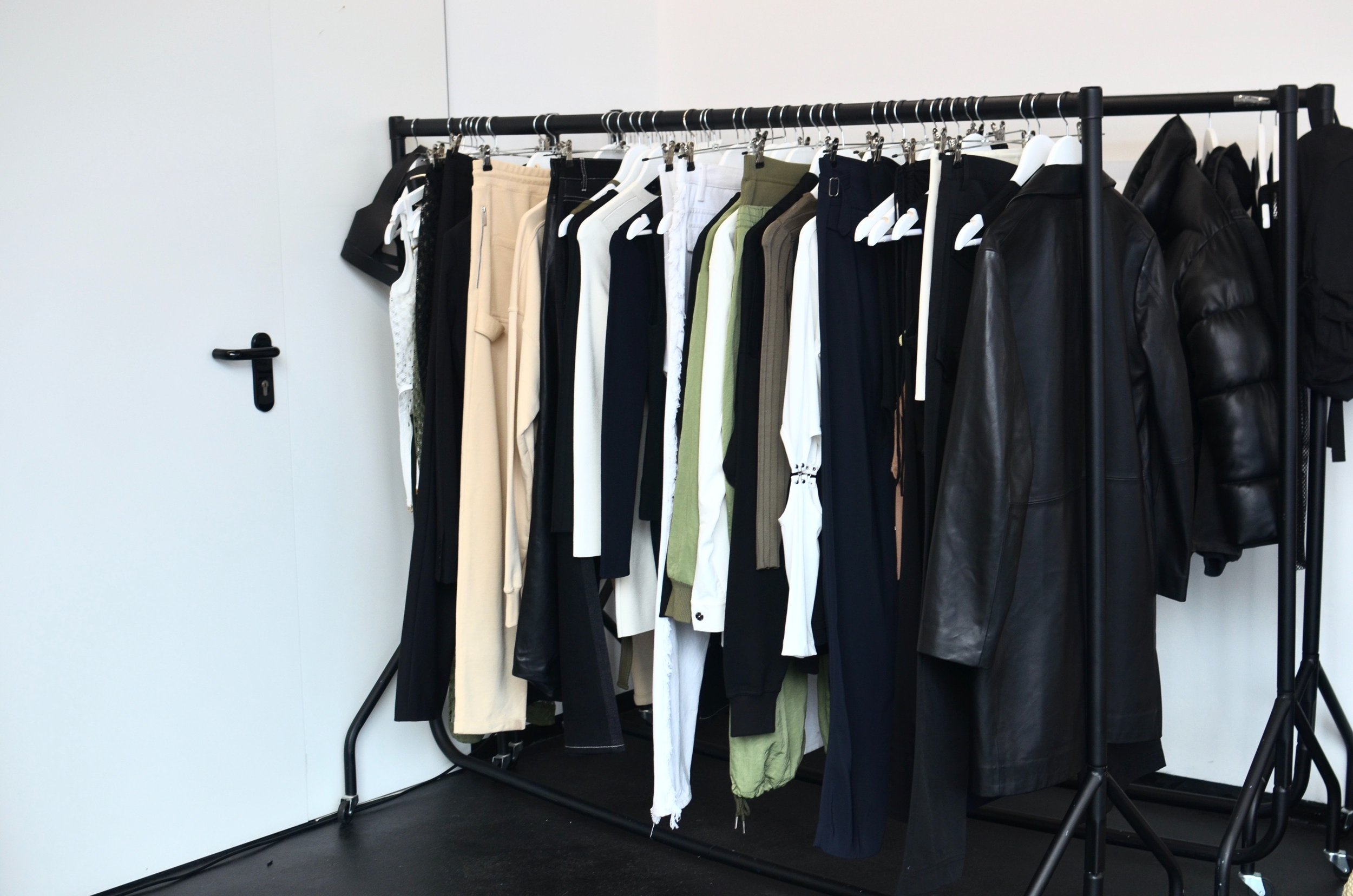Ethical Terms to Understand in Ethical Fashion
Ethics, also known as moral philosophy, is the philosophical study of morality. Moral philosophy suggests that ethics is a branch of philosophy, a systematic use of critical reasoning to answer the most fundamental questions in life. It involves grappling with our feelings, taking in the facts of each situation, and understanding our ideas by using critical reasoning. This requires forming logical arguments that consist of statements asserted with reason. This is how we show if a moral judgment is or isn’t justified, whether a moral principle is or isn’t sound and whether an action is or isn’t permissible. Within the fashion industry, we face moral issues found within the conception, production, and consumption of clothing. This has created the term “fast fashion” for the rapidly produced, cheap clothing brands sell us. However, the term “ethical fashion” has emerged to counter fast fashion and to create a new narrative in the fashion industry. In this article, we will explore ethical terms you should understand to deepen your thinking and reasoning around ethical fashion to help create a more sustainable and equitable industry for everybody.
What is Ethics in Ethical Fashion?
Ethical fashion is not simply about dressing cute and saying you are being ethical because of the brand you bought your dress from. Instead, it speaks to moral philosophy that attempts to answer fundamental questions of morality. And to clarify, the terms “ethical/moral” are often used to mean having to do with morality while “ethics/morality” are more often used to mean moral norms of a group or individual. There are three major divisions that ethics can be further broken down into:
Logic: the study of correct reasoning
Metaphysics: the study of the fundamental nature of reality
Epistemology: the study of knowledge
All this work is done through critical reasoning, which is the careful, systematic evaluations of statements or claims. This process mainly involves analyzing concepts and evaluating logical arguments around morality. It requires discerning values, judgements, rules, principles, and theories around what is right and wrong, good and bad. This is important when morals guide our actions, define values and give reason for being the person we are. It forms how we live in the midst of all the choices, feelings, and actions that arise around what is good and bad.
Practicing Ethics in Fast Fashion
Practicing ethical fashion can very well be a way to practice what you believe to be important in the fashion industry. It speaks to your moral outlook and your values, especially when ethics is about our moral values which shape what is important in our lives, worth living for, and worth dying for. And even if people are not directly saying they are practicing ethical fashion, everyone is inherently involved in ethics. We all do ethics, everyone is practicing ethics and morality has a place in all our lives. Grappling with morality, on what is right and wrong, is something we will have to deal with for the rest of our life. Our world will always be filled with moral decisions, debates, conflicts and resolutions. In theory, everyone is practicing ethical fashion.
However, we have seen a niche space arise in the midst of fast fashion known as ethical fashion. People who explain they care about ethical fashion are advocates for more sustainable, fair and equitable forms of fashion. But conversations have primarily shifted towards the promotion of buying from certain brands that claim ethical and sustainable production practices. This calls into question what we mean by ethical fashion and how to really practice it. Ethical fashion also speaks to the following questions we need to ask ourselves on our personal and moral beliefs :
What is the greatest good?
What goals do you want to pursue in life?
What virtues do you want to cultivate?
What duties should/shouldn’t you fulfill?
What value do you put on human life?
What pain and perils should we pursue for notions like the common good, justice and right?
These questions speak to social concerns because they are ethical concerns requiring careful reflections using concepts and reasoning peculiar to ethics. However, people are free to escape some ethical issues and concerns, by being “free” to not think too deeply or too systematically about ethical concerns.
Confronting Ethical Dilemmas in Fast Fashion
People can find themselves accepting moral beliefs and norms given by family and society without serious question or thought. This is an easy route to take that can be described as forms of subjectivism, which is where feelings establish moral beliefs that bypass critical and thoughtful scrutiny of morality. People justify what is wrong and right if they feel right or wrong. And when moral realities are relative to each person this is known as subjective relativism. Yet, this does not excuse not needing a good reason for thinking and feeling the merits of your moral beliefs. You undermine your personal freedom by accepting ethical moral beliefs and norms handed down to you. Those beliefs were never originally yours, making those beliefs take control of the path of your life that you are blindly following.
You need to evaluate your thoughts, critically examining the beliefs in yourself and whether they merit as your thoughts. This will allow you to be in charge of your actions and choices, setting yourself free. People who adopt no-questions increase the chance of responding to contradictions and moral dilemmas with incomplete, confused or mistaken assertions. This calls for the growth of intellectual tools to critically evaluate and re-evaluate existing moral beliefs, especially in the fashion industry.
So, instead of buying yourself into ethical fashion, consider taking time to foster your own intellectual moral growth. Explore ethics and track your personal moral progress versus blindly accepting the morality provided by society. Consider asking yourself the following before you go shopping to begin your intellectual moral growth:
What makes an action right or wrong?
What makes my moral argument sound?
Should my actions be judged by its consequences or by the kind of action that it is?
Different Types of Ethics
There are different types of ethics to be aware of when facing moral questions and dilemmas. While moral philosophy is what people should believe and do, descriptive ethics is the scientific study of moral beliefs and practices. It aims to describe and explain how people actually behave and think when dealing with moral issues and concepts. However, philosophers have distinguished three major divisions in ethics:
Normative ethics: This is the study of principles, rules, or theories that guide our actions and judgments. Normative refers to the norms, aka standards of judgment of what is right and wrong. The goal of normative ethics is to establish the soundness of moral norms.
Metaethics: This is the study of meaning and logical structure of moral beliefs that asks what it means for an action to be right, whether a moral principle is justified, and if there is such a thing as a moral truth. The job of metaethics is to question assumptions about the meaning of moral terms and the logical relation to them.
Applied ethics: This is the application of moral norms to specific moral issues or cases, particularly for medicine and law. It is commonly explored in medical ethics, journalistic ethics, and business ethics. In applied ethics, the results of applying a moral principle or theory to specific circumstances are studied to learn about the moral characteristics of a situation, or the adequacy of moral norms. Questioning things like whether it's permissible for scientists to test the effects of chemicals on animals for beauty products allows us to search for deeper answers in applied ethics.
Moral Values and Ethical Elements in Ethical Fashion
Consider what your moral values are relating to the fashion industry by discerning what you think is morally good and bad, and what you consider is blameworthy versus praiseworthy. It is also important to decipher what you see value in and to what that means to you. There are things that are instrumentally, or extrinsically valuable, which is when something is valuable as a means to something else. However, other things are intrinsically valuable, which is when things are valuable simply because they are what they are without being a means to anything else. Yet, ethics also involves a distinctive set of elements:
Preeminence of reason: The use of critical reasoning helps us keep our feelings about moral issues in perspective. Feelings are an important part of our moral experience, which makes empathy possible and gives us a deeper understanding of the human impact of moral norms. Consider using critical reasoning to further inform your feelings to help decide moral questions on their logical merits.
The universal perspective: Logic argues that moral norms and judgments follow the principle of universalizability, which is the idea that a moral statement (a principle, rule or judgment) that applies in one situation must apply in all other similar situations. The point of universalizability applies to reasons used to support moral judgments asserting that if a reason applies in a specific case then those reasons should also apply in all similar cases.
Principle of impartiality: This principle emphasizes having a sense of impartiality for all moral statements from a moral point of view. It asserts that every person should be considered equal and treated accordingly. And where you weigh the interests and welfare of all individuals equally as all others, and hence treat everyone equally and the same. Yet, there are sometimes good reasons to treat people differently based on the situation. A key example is when some patients in hospitals are prioritized in order to save their lives. This situation is a matter of life or death- a suggested good reason to not treat everyone the same based on the situation.
Dominance of social norms: The dominance of social norms addresses the moral norms that dominate our lives since they are the principle and values we accept and apply in our everyday lives. However, there is a difference of moral norms versus legal norms, aesthetic norms and prudential norms. Legal norms are about laws and statues, while aesthetic norms are about artistic creations, and prudential norms are about the practical considerations of self-interest. Take this into account the next time you simply accept something as normal and valuable in your life.
A great deal is at stake when we do ethics, including countless decisions that determine the quality of our lives. It is important to understand ethical terms to better understand where we stand with ethical fashion. Take time to engage in intellectual moral growth to further foster a deeper understanding of the ethical implications of our choices in fashion. It will challenge us to reflect on important moral questions surrounding fashion, which will hopefully lead to more people taking on a conscious and ethical approach to fashion.




